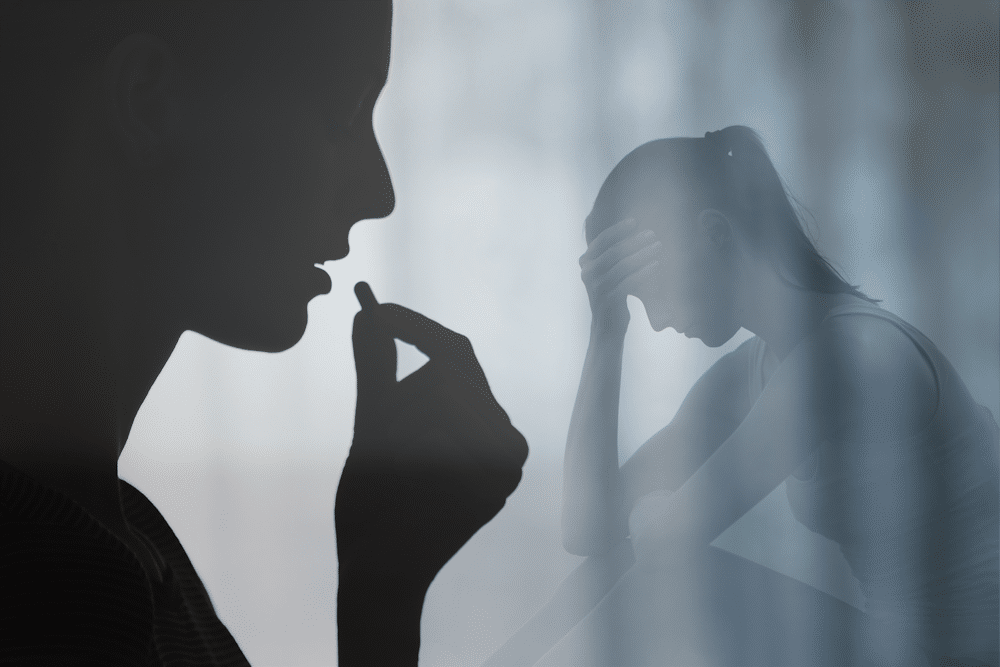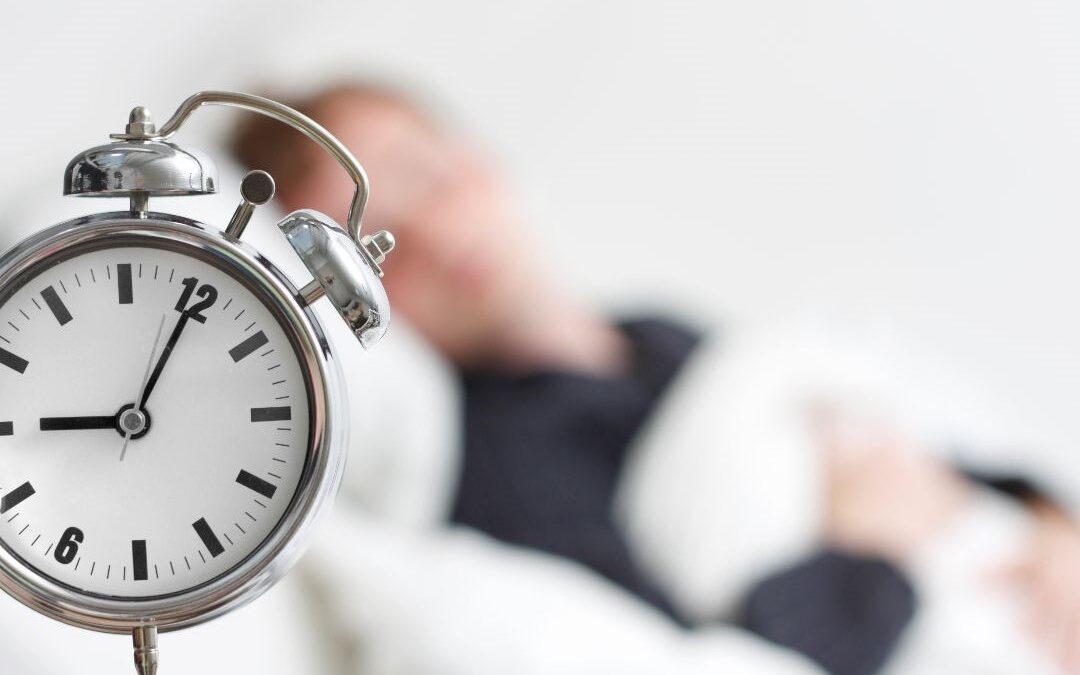Mood stabilizers are medications used for treating mood disorders, such as bipolar disorder, which is where a person’s mood changes from a depressed state (lows) to a manic state (highs). These drugs help reduce these severe swings in mood and regulate the side effects associated with the disorder.
Mood disorders are classified as mental health disorders and are part of an annually increasing mental health crisis sweeping the globe. Bipolar disorder, as well as other mood disorders, are life-long conditions with no known cures. This does not mean that people suffering from these disorders are on their own. There is help available and treatment programs in Portland, Maine that can help a person learn to cope and manage to live with these disorders, as well as medication that can reduce the extreme effects.
What Are Mood Stabilizers and What Do They Do?
Mood stabilizers are a key component in bipolar disorder treatment. Mood stabilizers are a type of medication that helps people with bipolar disorder and other mood disorders better manage their symptoms. These drugs work by restoring the balance of chemicals in the brain that affect mood, such as dopamine, serotonin, and glutamate.
It can take several weeks for mood stabilizers to reach their full effect, and other psychiatric medications, such as antipsychotics, are commonly used during the early treatment stages to treat acute mania.
Depression ensconced in bipolar disorder can be hard to differentiate from other forms of depression. Antidepressant medications can be an effective treatment, but they can trigger mania in a depressed person if used alone with bipolar disorder. Antidepressants can also cause an increase in mood episode frequency in a condition known as rapid cycling. This risk is reduced if the person is also taking mood stabilizers.
What Are Some Types of Mood-Stabilizing Medication?
A few types of mood-stabilizing medication are
- Lithium. This is a chemical element that is naturally found in some water, food, and rocks and is usually used in treating bipolar disorder. Because of lithium’s nasty side effects, people who take it need to undergo regular blood tests to monitor kidney function and lithium levels.
- Anticonvulsants. These medications are used to treat seizures and stabilize moods. Examples of anticonvulants are, valproate, lamotrigine, carbamazepine, oxcarbazepine, topiramate, and gabapentin. People taking anticonvulsants may need to have regular blood tests to monitor proper liver function and blood counts.
- Antipsychotics. These are medications that can help control mood and treat psychosis. Some examples include aripiprazole, olanzapine, risperidone, lurasidone, quetiapine, ziprasidone, and asenapine. People on antipsychotics often have regular blood tests to monitor glucose and lipid levels.
What Are Some Side Effects of Mood-Stabilizing Medication?

Mood-stabilizing medications are strong drugs that help people with bipolar disorder and other mood disorders manage their symptoms at the cost of side effects that can be serious. Some common mood-stabilizing medication side effects are:
- Nausea. This is a feeling of discomfort and sickness in the stomach that may make you want to vomit. Nausea can be caused by lithium, carbamazepine, and valproate.
- Dizziness. This is a feeling of lightheadedness, unsteadiness, or faintness that affects your balance or vision. Lithium, carbamazepine, and lamotrigine can all cause dizziness.
- Tremors. Tremors are shaking or trembling of the hands, arms, legs, or other body parts and can be caused by lithium and valproate.
- Weight gain. Lithium, valproate, and olanzapine can cause weight gain that may affect your health or self-esteem.
What Are the Best Ways to Control the Side Effects of Mood Stabilizers?
There are a few measures you can take to mitigate the side effects of mood stabilizers.
- Mood stabilizers can increase UV light sensitivity. Slather yourself in sunscreen before going outdoors to prevent burning.
- Prevent stomach upsets (nausea) by taking your dose with food or milk and by avoiding heavily spiced foods.
- Some medications cause drowsiness, so check with your doctor about taking them at bedtime.
- Weight gain can be prevented by eating a balanced diet, exercising regularly, and monitoring your calorie intake.
- Reduce tremors by avoiding stress, cold temperatures, and stimulants.
- Reduce instances of dizziness by getting up slowly from a sitting or lying position, avoiding alcohol in Portland, Maine, and caffeine, and maintaining hydration.
What Are FAQs About Mood Stabilizers?
How Long Before Mood Stabilizers Take Effect?
The amount of time it takes for the effects of mood stabilizers to begin working will vary from person to person. Factors such as the person’s age, medical history, general health, the presence of other medications, dosage, and the person’s response will all act on the time variation. A few mood stabilizers will start working within a few days or weeks, but others may take several months to show their full results. It is important to follow your medical professional’s instructions and refrain from stopping or altering the medication without prior consultation.
Can Mood Stabilizers Cure Mood Disorders?
Mood disorders are a life-long condition that a person must live with. Mood stabilizers are not a cure for mood disorders, but they help manage the symptoms and improve quality of life. Mood stabilizers are more beneficial to a person when combined with other treatments, such as psychotherapy in Portland, Maine, and peer support.
Are Mood Stabilizers Addictive?
Mood stabilizers are not addictive, which means that they do not cause physical or psychological dependence. Despite this mood stabilizers should not be stopped abruptly, as this can cause withdrawal effects or relapse of symptoms.
How Do I Cut Down or Stop Taking Mood Stabilizers?
Speak to your medical professional. They can work with you to determine whether or not it is the right time to quit or reduce mood stabilizer medication. They are also the best people to oversee your reduction or withdrawal and can step in immediately if any other medical conditions or adverse effects of withdrawal make an appearance.
Will Mood Stabilizers Interact With Other Medications?
Certain medications can affect the blood levels of mood stabilizers, meaning your dose of mood stabilizer may require adjustment to reduce any counter effects. Inform your doctor or dentist about any medications you are taking before they prescribe another medication. Check with your pharmacist before using any over-the-counter (OTC) medication, including painkillers, herbal remedies, cough syrups, or cold or allergy tablets.
What Happens If I Drink Coffee or Alcohol While Taking Mood Stabilizers?
Coffee contains caffeine, a stimulant that increases the risk of manic episodes in people with bipolar disorder, interferes with sleep patterns, and degrades mood stability.
Alcohol is a depressant that can worsen symptoms of depression and anxiety and can also counteract the benefits of your mood stabilizer medication, making it harder to treat your condition.
What Happens If I Mix Street Drugs or Other Substances with Mood Stabilizers?
Mixing street drugs with mood stabilizers can complicate your condition even further and create unnecessary problems. Cocaine and amphetamines can trigger an episode of mania or depression. Marijuana could lift you or bring you down, but its effects on mood can be unpredictable, especially when combined with bipolar disorder. Street drugs can also interact with your mood stabilizer medication, reducing its effectiveness or causing dangerous and fatal side effects.
Will Mood Stabilizers Negatively Impact My Ability to Drive Safely?
Mood stabilizers can delay your reaction time and slow your reflexes, and this can impair your ability to operate heavy machinery or drive.
Can Mood Stabilizers Affect My Sexual Drive and Function?
Certain mood stabilizers, such as lithium, valproate, and carbamazepine, can affect the sex drive and function of people who take them. The exact means by which these drugs cause sexual side effects are not completely understood, but they may involve hormonal level changes, altered blood flow, or changes in nerve signals in the brain and genitals.
Possible sexual side effects of mood stabilizers include:
- Reduced appetite or interest in sex
- Difficulty acquiring or maintaining an erection
- Difficulty reaching orgasm or ejaculation
- Vaginal dryness or pain during intercourse
- Changes in the menstrual cycle or fertility
Is It Safe to Take Mood Stabilizers While Pregnant or Breastfeeding?
Taking mood stabilizers while pregnant or breastfeeding can pose some risks to both mother and baby, depending on the dose, type, and schedule of the medication.
More in-depth information about different mood stabilizers while pregnant or breastfeeding is:
- Lithium is considered the safest bipolar drug during the second and third trimesters, but it can cause problems with the normal functioning of the kidney, heart, thyroid, and fluid balance in older adults. Lithium can cause toxicity in infants so it is contraindicated for breastfeeding.
- Valproate and carbamazepine carry the risk of major malformation and developmental delay when taken in the first trimester. Valproate is also associated with an increased risk of autism spectrum disorder in unborn children. Valproate is considered safe while breastfeeding, but carbamazepine should be used with caution.
- Lamotrigine is deemed safer than other anti-seizure drugs, but it can cause serious skin rashes in older adults. Lamotrigine is moderately safe for breastfeeding.
- Antidepressants such as tricyclics and selective serotonin reuptake inhibitors (SSRIs) have varying side effects during breastfeeding and pregnancy. Some can cause mild, non-threatening effects in nursing infants, such as irritability, sleep disturbance, or poor weight gain while others can cause serious effects, such as cardiac defects, pulmonary hypertension, or withdrawal symptoms. Sertraline and paroxetine appear to be the safest antidepressants for breastfeeding.
- Antipsychotics such as quetiapine and olanzapine help with mood stabilization in bipolar disorder. They are generally considered safe during pregnancy and breastfeeding, but they occasionally cause sedation, weight gain, or movement disorders in older adults or nursing infants.
Can Children and Teens Use Mood Stabilizers?
Mood disorders can appear in early childhood or adolescence but are often misdiagnosed or treated with inappropriate medications. Mood stabilizers can help children and teens with mood disorders though they are not officially approved for this age group. Children and teens may experience different effects and side effects from mood stabilizers from adults and need to be monitored by their doctor regularly.
Can Older Adults Use Mood Stabilizers?
As people get older, their sensitivity to medications increases and they may require lower doses. Older people can take mood stabilizers, but there are some special considerations and precautions that older adults should take when using mood stabilizers. A few factors that affect mood stabilization medication use in older adults are:
- The type of mood stabilizer.
- The dose and schedule of the mood stabilizer.
- Other diseases and medications older adults may have/ be on.
Casco Bay Recovery Can Assist with Your Mental Health

Mental health issues have been on the rise for several years unchecked. Many people suffering from various mental health issues do not know that they have a problem, and many of those who recognize that something is amiss are reluctant to receive any form of help or care. The stigma that surrounds mental health disorders, particularly mood disorders, can lead people to feel that they must suffer in silence.
But this need not be the case. Mental health issues are nothing to be embarrassed by. Casco Bay Recovery is a treatment center located in Portland, Maine that specializes in treatment for mental health conditions as well as other disorders. We provide the most comprehensive and specialized care for each individual who enrolls in one of our programs.
Contact us today to speak with our admissions team about enrollment, schedule a tour of our facility, or speak with an expert about your concerns and options. We can help.
References
https://www.health.harvard.edu/blog/managing-weight-gain-from-psychiatric-medications-202207182781






